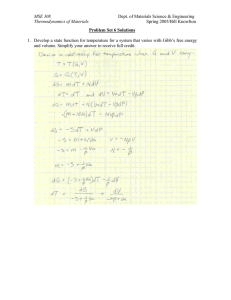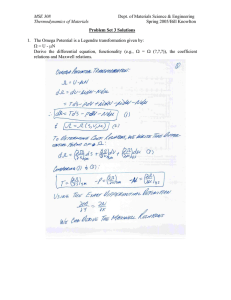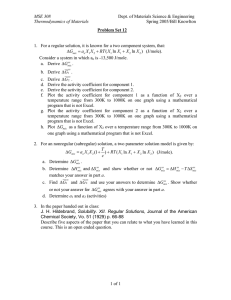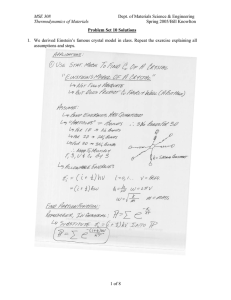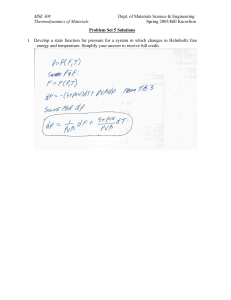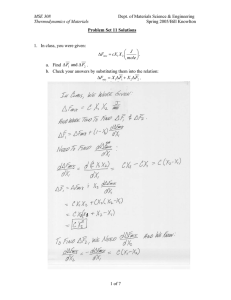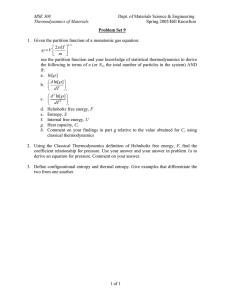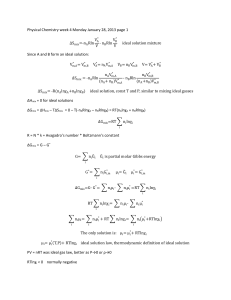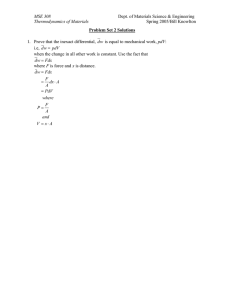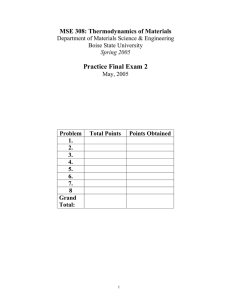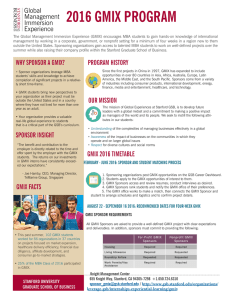MSE 308 Thermodynamics of Materials Dept. of Materials Science & Engineering
advertisement
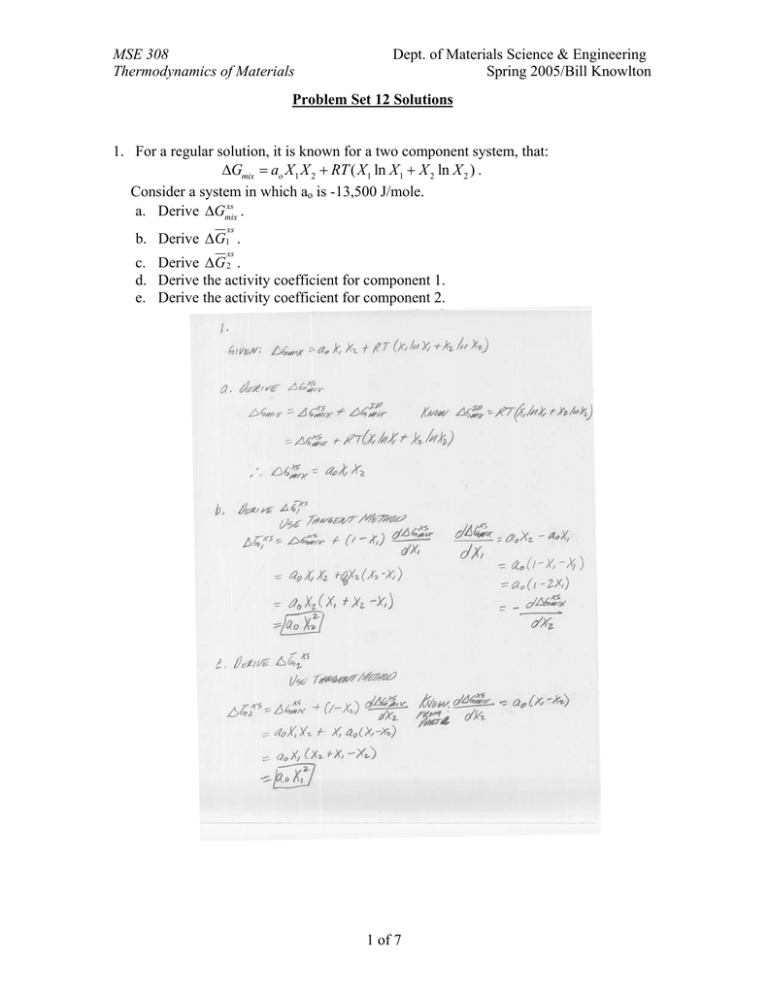
MSE 308 Thermodynamics of Materials Dept. of Materials Science & Engineering Spring 2005/Bill Knowlton Problem Set 12 Solutions 1. For a regular solution, it is known for a two component system, that: ∆Gmix = ao X 1 X 2 + RT ( X 1 ln X 1 + X 2 ln X 2 ) . Consider a system in which ao is -13,500 J/mole. xs . a. Derive ∆Gmix xs b. Derive ∆G1 . xs c. Derive ∆G 2 . d. Derive the activity coefficient for component 1. e. Derive the activity coefficient for component 2. 1 of 7 MSE 308 Thermodynamics of Materials Dept. of Materials Science & Engineering Spring 2005/Bill Knowlton 2 of 7 MSE 308 Thermodynamics of Materials Dept. of Materials Science & Engineering Spring 2005/Bill Knowlton f. Plot the activity coefficient for component 1 as a function of X2 over a temperature range from 300K to 1000K on one graph using a mathematical program that is not Excel. 300 − 1000 K HBlack to Blue L 1 0.8 inc. temp. γ1 0.6 0.4 0.2 0 0 0.2 0.4 0.6 0.8 1 X2 g. Plot the activity coefficient for component 2 as a function of X2 over a temperature range from 300K to 1000K on one graph using a mathematical program that is not Excel. 300 − 1000 K HBrown to Red L 1 inc. temp. 0.8 γ1 0.6 0.4 0.2 0 0 0.2 0.4 0.6 0.8 1 X2 h. Plot ∆Gmix as a function of X2 over a temperature range from 300K to 1000K on one graph using a mathematical program that is not Excel. 300 − 1000 K HBrown to Red L 0 -2000 γ1 inc. temp. -4000 -6000 -8000 0 0.2 0.4 0.6 X2 3 of 7 0.8 1 MSE 308 Thermodynamics of Materials Dept. of Materials Science & Engineering Spring 2005/Bill Knowlton 2. For an nonregular (subregular) solution, a two parameter solution model is given by: T ∆Gmix = ao X 1 X 2 (1 + ) + RT ( X 1 ln X 1 + X 2 ln X 2 ) . c xs a. Determine ∆Gmix . xs xs xs xs xs and ∆Smix and show whether or not ∆Gmix = ∆H mix − T ∆Smix b. Determine ∆H mix matches your answer in part a. xs xs xs . Show whether c. Find ∆G1 and ∆G 2 and use your answers to determine ∆Gmix xs agrees with your answer in part a. or not your answer for ∆Gmix d. Determine a1 and a2 (activities) 4 of 7 MSE 308 Thermodynamics of Materials Dept. of Materials Science & Engineering Spring 2005/Bill Knowlton 5 of 7 MSE 308 Thermodynamics of Materials Dept. of Materials Science & Engineering Spring 2005/Bill Knowlton 6 of 7 MSE 308 Thermodynamics of Materials Dept. of Materials Science & Engineering Spring 2005/Bill Knowlton 3. In the paper handed out in class: J. H. Hildebrand, Solubility. XII. Regular Solutions, Journal of the American Chemical Society, Vo. 51 (1929) p. 66-88 Describe five aspects of the paper that you can relate to what you have learned in this course. This is an open ended question. 7 of 7
